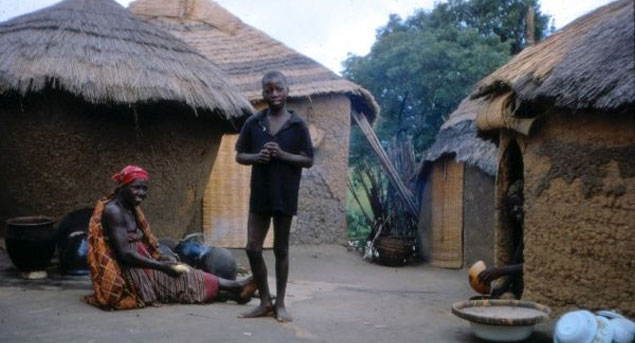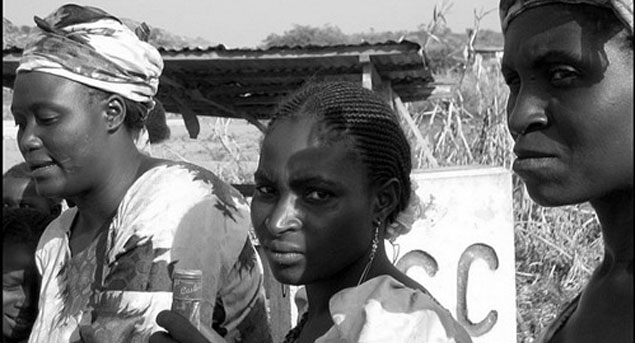Let me introduce you to the Rich Ggagyi culture and Marriage
Marriage is a sacred obligation in every culture of the world. Details ranging from courtship, payment of dowry, marital rituals and other celebrations varies across creeds, spiritual dispositions and traditional obligations. Amongst the Gbagyi speaking people of Nigeria, marriage and the process thereof is the same safe for slight discrepancies attributed to dialectical differences. This article represents the generally acceptable marital engagements of the Gbagyi ethnic group. And the facts presented herein refers to the traditional way of marriage as known to the Gbagyi people in time past.
In a typical Gbagyi culture marriage is a thorough but exciting endeavour. Initiation into the marital life for a male gbagyiza begins between the age of fifteen to eighteen as boys within this age bracket are considered capable of producing offspring. For the female gbagyi child, betrothment could be considered for her between the early age of eight and ten. This is due to the expectation that the girl will be ripe for marriage by the time the dowry payment is completed and a marriage date fixed.
IMPORTANT POINTERS
Once a boy decides to scout for a wife or when his parents reach such decision on his behalf, certain important questions are asked. These are determinant factors as far as the gbagyi cultural dictates on marriage goes. These uncompromising questions are: Is the family of the potential bride hard working? Are they troublesome? Are they associated with hunger? How respectful and respectable is the girl, how chastised? How fair is the family’s history with marriage? Is there any case of infertility or impotence in their family? And most importantly whether the bride-to-be had been secretly betrothed in the past.
After these questions might have been satisfactorily answered the groom is given a nod to initiate or continue with the process of courtship, as the case may be. If otherwise the boy is advised to look elsewhere.

COURTSHIP
The next stop is courtship. This is where the fun is or the pain for some people. Gbagyi people attach unqualified importance and strictness to courtship such that it lasts for a period of seven years.
There are two approach to courtship among the Gbagyi people. The first but rare method of courtship is totally in the interest of the groom’s parents. This is when the parents of a boy directs the boy’s attention towards a particular girl or accost the family of the said girl on his behalf. This is usually the case when parents of the groom desire their son to marry from a particular family, for private or popular reasons.
The second approach lets the groom to hunt for a wife by himself. He reports to his parents whenever he finds a girl of his liking. Then the next phase is initiated.
At this stage the groom’s parents sends a delegation to the bride’s parents. The bride’s parents in turn requests some time to confer with the girl. A date is fixed when the groom’s delegation returns with two sets of plate. These sets of plates are then accepted by the bride’s parent to signify acceptance of their proposition. The delegation is then referred to a member of the bride’s family who is to serve as intermediary known as migbiyi. The migbyi deals with everything from here.
The next phase in the courtship is the payment of dowry. The groom is hereby required to do some farm work for the bride’s parents for a period of seven years. This farm work includes making of yam heaps, weeding of ridges and harvesting of farm produce. Usually the groom is assisted by his friends, and the farming continues, two or three times in a year, for seven consecutive years. To test the groom’s ability to feed the bride he’s asked to bring an equivalent of 50kg of guinea corn of his own harvest. This is called wyiga. The groom begins with one wyiga and continues to add one until the seventh year when he presents seven wyiga shortly before picking a date for the marriage.

During this period of courtship, the suitor is allowed his bride. He arrives at her home accompanied by a friend or brother. Then the bride meets him, accompanied by two sisters or friends. This is to dissuade sexual immorality. In every Gbagyi kingdom, any girl who takes in out of wedlock is banished to live in the outskirts of the village until after birth. During this visits the wives of the bride’s brothers may bill the groom and his friend for hospitality rendered. The usual tactics include leaving a few coins in bathing water, water meant for handwashing and in an extra bowl when meals are served. The groom is expected to double whatever amount he and his companion finds. It is this same people, joined by the bride’s sisters who will ambush the bride’s team for a wrestle match each time they come for the farm work. The women usually win because gbagyi women are abnormally strong, plus they hit the men after the day’s hard labour. These women are allowed to do this since they are seen as the bride’s friends.
After seven years of dowry payment and courtship, a wedding day is picked.
THE WEDDING RITES
The wedding begins with the sacrifice of chickens or goats asking for the blessings of the gods upon the couple. The bride is thereafter released to the groom’s family and friends. It is customary to prepare a meal with eleven chickens, ten of which goes to the bride’s parent and the last to the migbiyi. The bride is accompanied to the groom’s house by five or more maids. That day, at the groom’s house, celebrations ensues from sunset till dawn. The next morning, an elderly woman will call out several names carefully chosen for the bride. When the bride hears one which suites her, she rushes out of her hut and is taken to the bathroom where same elderly woman strips her half naked and inspects her body features and as such determining her chastity. This is called the bridal bath. Again, the villagers party till the break of dawn. On the second morning, the maids who accompanied the bride go into the bush to fetch firewood for the bride. Then they fetch water for all the old people in the village. After this, other marriage festivities which include singing and dancing competitions, wrestling matches et al continues for seven days. On the seventh day, the accompanying maids return to their village leaving only one behind who is called mula cheknu to help the bride with domestic chores. Everybody disperse and the couple begins their matrimonial journey.

Gbagyi woman…. Photo by Abdul-Walid
MARRIAGE BY ELOPEMENT
This form takes place for several reasons inter ali: if the groom does not have the stomach for the normal tortuous procedure; if the bride’s parents are against the union of the couple; to avoid shame the retributions that abound when a girl becomes pregnant out of wedlock. This type of marriage is simple. The girls runs away with her suitor. This is referred to as stealing the bride. After a day or two, after the girl’s parents begin searching for their daughter, the boy confesses to his parents what he has done. His parents then send emissaries to alert the bride’s parents. The groom is thereby punished with a demand for a cock and a ram. After that the normal wedding ritual begins, starting with the sacrifice of animals or birds as in the normal wedding described above.
- It is extremely important to mention that there is no limit to the number of wives a gbagyi man could marry. So it is safe to conclude that the gbagyi culture encourages polygamy. Also, at weddings a caveat is handed out to the couple, the man especially, to rather return the girl to her parents if she falls short of his standard or expectation to avoid malice and mal treatment. By implication, Gbagyi people allow divorce.
By Tee Jay Dan
Is the GBAGYI’s history and culture fading away?
Izikhala zakamuva by cadmin (bheka konke)
- The Story of a Ghetto Boy - June 28, 2015
- The Rise of The Next Gen. Marley’s | Bob Marley’s grandsons (VIDEO) - Kwangathi 8, 2015
- Ngaleso sikhathi endaweni ethile eSweden, laba badansi base-Afrika baseSweden… - March 24, 2015



